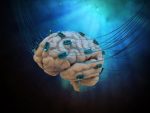Abnormal Brain Activity Found in PWS Patients When They See Food
Written by |

In people with Prader-Willi syndrome (PWS), certain parts of the brain associated with decision-making and reward processing are less active in response to the sight of food, a study has found.
The findings suggest that people with PWS get less of a “reward” feeling from eating than their typically developing peers, which could contribute to the excessive eating that is characteristic in PWS.
The study, “Food-Related Brain Activation Measured by fMRI in Adults with Prader–Willi Syndrome,” was published in the Journal of Clinical Medicine.
One of the hallmark symptoms of PWS is hyperphagia, or excessive feelings of hunger. Although this symptom is well-documented, the actual changes in the brain that regulate these different feelings of hunger are not well-defined, as are the control of food intake and energy balance in general.
For this study, scientists in the Netherlands recruited 12 adults with PWS — four males and eight females, with a median age of 22.9 years. For comparison, 14 of the patients’ siblings, who did not have PWS, also participated.
In the study, participants who had not eaten since the night before were scanned via functional MRI while looking at various images — some with food, some without.
Functional MRI is an imaging technique that measure changes in blood flow in the brain. Since more active brain regions require more oxygen, an increase in blood flow in a part of the brain is indicative of increased activity in that region.
Results showed that certain brain regions would increase in activity in the siblings but not in the PWS patients when they looked at pictures of food.
“Our imaging data revealed that PWS patients indeed have different food-related brain activation as compared to healthy controls, showing less activation in the left insula and bilateral fusiform gyrus” regions in the brain, the researchers wrote.
The insula is known to be important for decision-making (and that decisions in this area affect taste), and the fusiform gyrus has been implicated in hunger and reward processing, the researchers noted. As such, they expected to find more activation in the fusiform gyrus in the PWS group relative to controls when looking at food pictures during fasting.
“However, our results show the opposite,” the researchers wrote. “It could also be argued that PWS patients might experience less feelings of reward [when they eat], thereby stimulating the continuation of eating and seeking food.”
Among the PWS patients, food-related activation in the amygdala — a brain region important for regulating emotion and reward — were associated with lower levels of blood sugar and higher levels of leptin, a hunger-regulating hormone, further analyses showed.
“Altogether, we found that in PWS adults during hunger, food-related brain activity in regions related to taste, decision-making, and reward processing may be altered, and that leptin might be a contributing factor to hyperphagia in PWS individuals,” the scientists concluded.
“More research is needed on the integration of the current results into proper obesity prevention and management strategies within this patient group,” they added.






